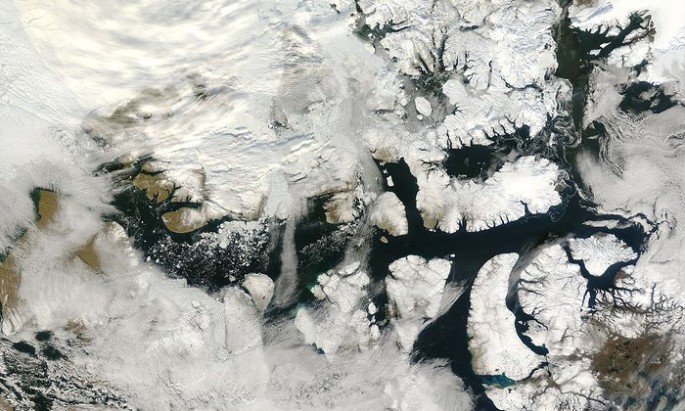As the world continues to warm up due to climate change, China is mulling on taking advantage of the situation to shorten maritime journeys from China to the U.S. East Coast, The Guardian reported.
The so-called Northwest Passage, which runs from the Pacific to the Atlantic, can reshape global trade flows as more Arctic ice melts. It has long been a fabled route among European explorers as early as the 19th century.
China's plans to utilize this seaway located north of Canada was outlined in a 356-page, Chinese-language guide published by China's maritime safety administration.
The shipping guide includes descriptions of ice conditions and nautical charts for the Northwest Passage, according to China Daily, a government-run publication.
"There will be ships with Chinese flags sailing through this route in the future," Liu Pengfei, administration spokesman, said in the report by China Daily.
"Once this route is commonly used, it will directly change global maritime transportation and have a profound influence on international trade, the world economy, capital flows and resources exploitation," Liu added.
The problem, however, is Canada considers the Northwest Passage as part of its internal waters. Some countries, on the other hand, consider it as an international strait.
The national government has yet to comment on the issue.
"The Chinese side will make a suitable decision according to various factors," said Hua Chunying, foreign ministry spokeswoman, at a regular briefing in Beijing.
Meanwhile, a spokesman for Stephane Dion, Canada's foreign minister, said in an email that there is no automatic right of transit passage in the Northwest Passage.
"We welcome navigation that complies with our rules and regulations. Canada has an unfettered right to regulate internal waters," said Joseph Pickerill.
A Chinese shipping company, COSCO, has already announced plans to use the "Northeast Passage" located north of Russia to launch regular services from China to Europe. In fact, ships from COSCO have already navigated the route in 2013 and 2015.
"Many countries have noticed the financial and strategic value of Arctic Ocean passages. China has also paid much attention," Wu Yuxiao, who co-authored the shipping guide, was quoted by China Daily.
Although China has no territorial claims to the Arctic, the country joined the Arctic Council and was granted observer status in 2014.



























